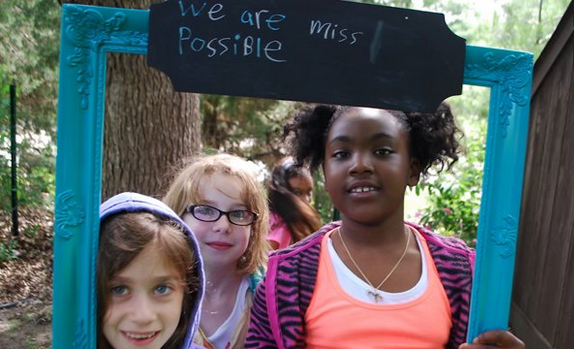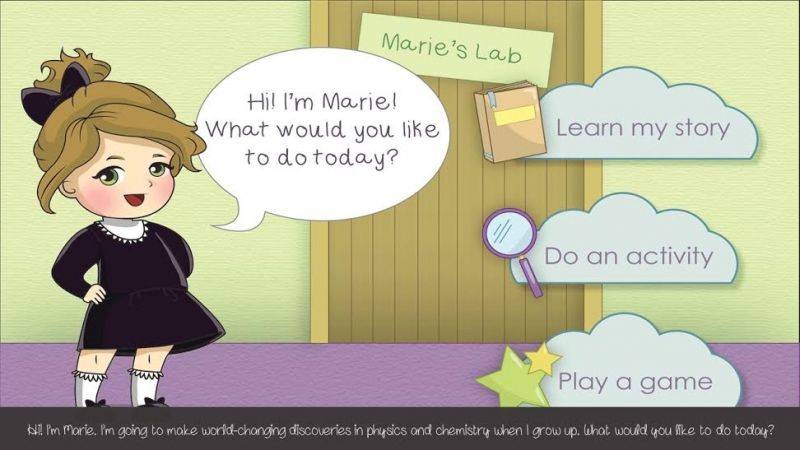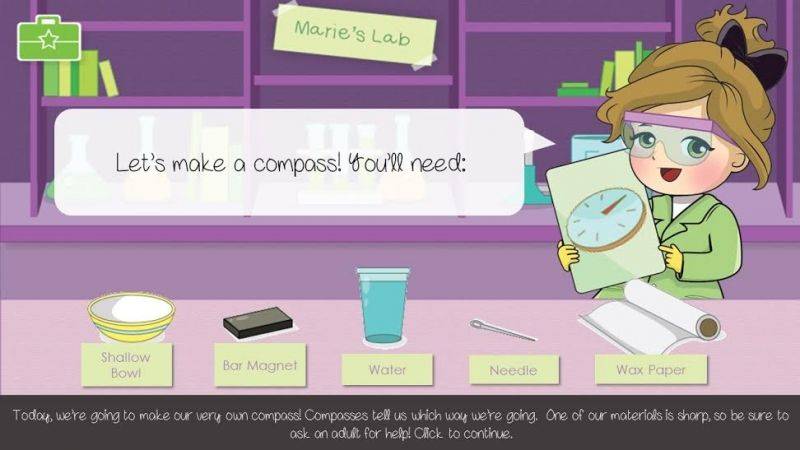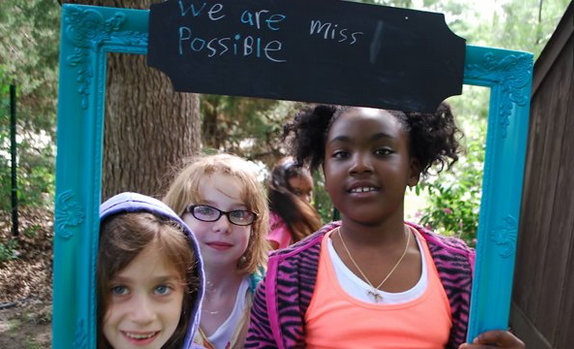
Sometimes I get an assignment that just knocks me over. I’m hooked before we even talk. I am endeared to the subject of my interview without even knowing them. This is one of those times.
My name is Supriya and I’m the Co-Founder of Miss Possible, a start-up toy company that aims to empower girls to dream big and achieve. We are creating a series of dolls that represent real women who changed the world, and an accompanying app that engages girls in hands-on activities and on-screen play that bring the woman’s work to life.
I could not wait to get started.

Smile Politely: How did you come up with this idea? (I love it, by the way.)
Supriya Hobbs: My co-founder, Janna Eaves, and I are both female engineers and, when we got into our classes, we recognized that there were not many women. Janna and I initially met in University Housing on a floor called Innovation LLC. It’s a Living/Learning community for students interested in entrepreneurship and innovation, and we quickly realized we had a lot of similar interests. We also began to do outreach programs through the Society of Women Engineers, a student organization on campus, and really enjoyed sharing our passion for engineering with kids! We knew that we were passionate about increasing the number of women in engineering and, when the deadline approached to enter the Cozad New Venture Competition in 2013, we sat down for a few hours and brainstormed ways to address that issue. We recognized the importance of role models in our own decisions to study engineering. [We had] desires to have a positive impact on the world and saw the potential for these to influence girls’ decisions to study many different fields. We had chosen engineering, but there are many fields where girls often lack visible role models or the understanding of the global impact.
In that one brainstorming session, we came up with the preliminary idea for Miss Possible and our core goal: inspire girls to do big things and help them change the world. The idea in its final form was a result of talking to parents and girls about what they want to see, and now we think we have it!
SP: What makes engineering especially exciting and important for girls — or anyone at all?
Hobbs: Engineering is creative problem solving! Engineers can do everything from building roads and bridges (civil engineering) to making gasoline or medicine (chemical engineering) to creating video games (computer scientists) and much more! To me, the fact that engineering is everywhere is part of what makes it so exciting! It’s nearly impossible to go a single day without using something that an engineer has helped create. It’s also extremely collaborative, which makes it much more fun to do.
It’s so important for more girls to become engineers because engineers have a big impact on how problems are solved. If only one subset of the world’s population is represented on those teams, they miss out on other points of view. Having diversity — of gender, race, life experience, etc. — on these teams helps them solve problems in a way that is applicable to a much wider audience. Ultimately, this helps engineers improve the lives of more people.
Janna and I both elected to study engineering, and that’s part of where the idea for Miss Possible started, but Miss Possible isn’t just about encouraging girls to be engineers. We’re starting by featuring role models in science, technology, engineering, and math (STEM) fields because we’re especially passionate about them and there aren’t nearly enough girls in those fields. We plan to expand to feature a wide variety of career options. After all, there are lots of different ways to change the world!
SP: So how does your business spread that message of world change?
Hobbs: We’ve designed our products to emphasize “Everyone can change the world.” Our dolls feature real women, who made significant contributions to the world, portrayed as children. Especially at a young age, it can be very hard to look at the incredible achievements of these women and imagine ourselves in their places. By showing these women at age ten, we help girls remember that these great role models were once kids too.

Hobbs: Through our app, we go one step further and help girls actively engage with their role models. Our app has content that corresponds to each character, including the woman’s story and hands-on activities that introduce girls to their fields. For example, Marie Curie leads kids through chemistry and physics activities they can do with materials in their kitchen. Once girls see that they have the potential to do and [they] start to gain confidence in their abilities, they’ll begin to understand that they, too, can change the world.
SP: What a great idea! Showing influential people as children is a wonderful way to help them relate to those figures.
How can people get in touch with your products?
Hobbs: We are launching a crowdfunding campaign on Indiegogo, and that will be the first opportunity to buy our products! If we reach our goals for the campaign, we’ll have the funding to begin manufacturing our dolls and finish developing our app. Starting July 14th, anyone who’s interested can check out our campaign and pre-order our products there! We plan to ship products to all of our backers in January 2015, so girls can begin the new year with fun, strong, inspiring role models.
SP: What are some of the products you’ll have?
Hobbs: Our first product line will be dolls and an app. Each doll will represent a woman who changed the world and will come with access to fun content on the Miss Possible app. Those who buy the doll will be able to learn the story of their role model and do engaging hands-on activities that start to teach them about her career. The first doll we’re making is Marie Curie, a Nobel-Prize-winning chemist and physicist. We really love her story. She had to sneak around to get an education because girls weren’t allowed to study at that time, and she still managed to become one of the greatest scientists of all time! After Marie, we’ll make Bessie Coleman, the first African-American female aviator; then Ada Lovelace, the first computer programmer.
We’re doing something fun to decide the character for our fourth doll: Anyone who backs our campaign on Indiegogo will get to vote to decide the next character! We’re excited to find out who everyone wants to see!
SP: Awesome!
Check out Miss Possible’s campaign on Indiegogo and make a contribution. Vote well, dear readers.








